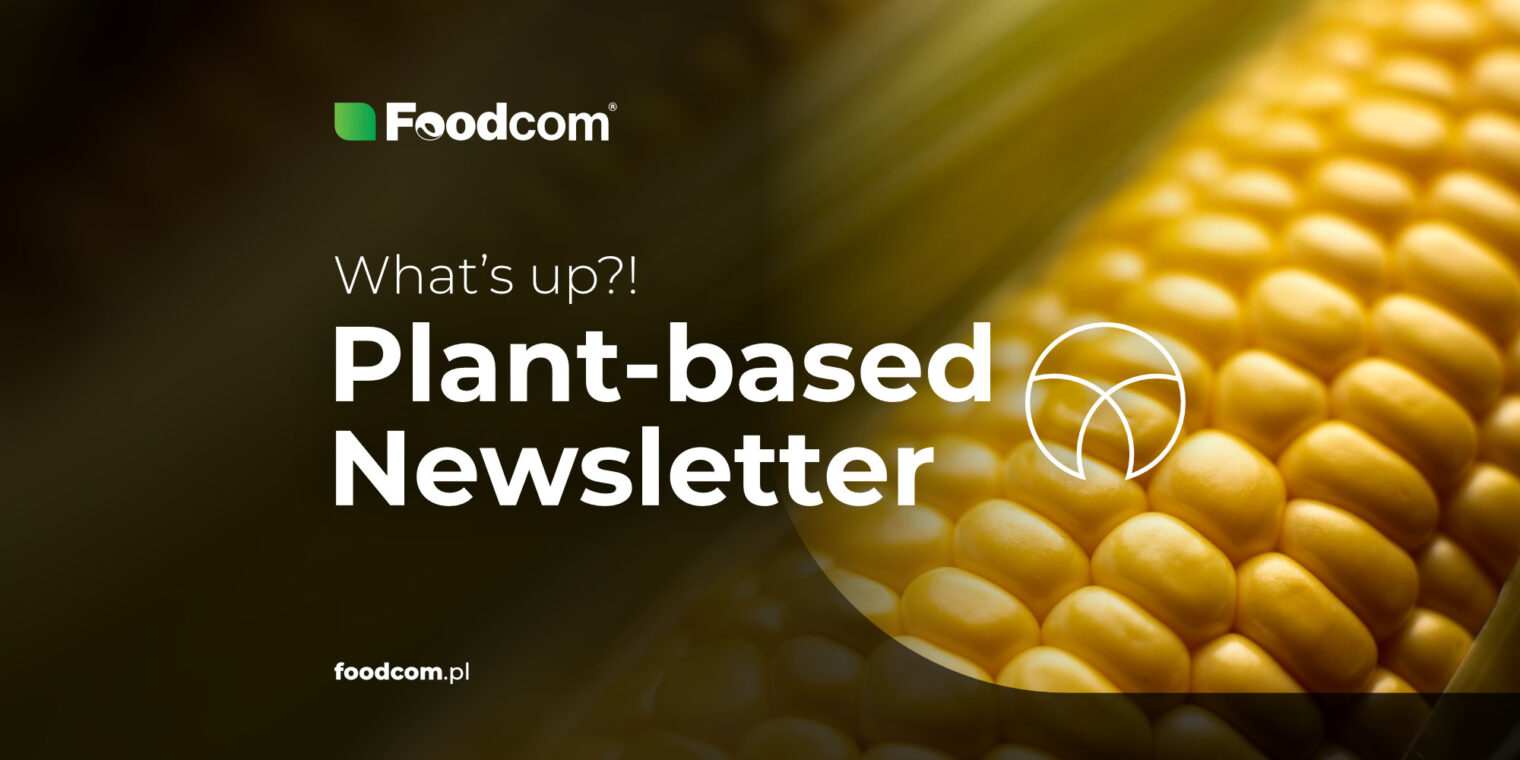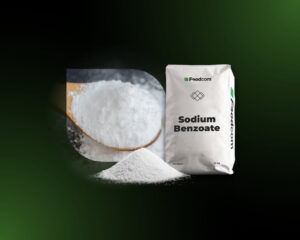Everyone is looking for low prices, discounts and favorable bargains. Wow, what an insightful statement. But that’s just the way it is, the cheapest deals are eagerly sought by consumers and buyers alike. It has always been this way, and always will be, but in times of rampant inflation, it’s particularly obvious. It becomes the one factor that has the greatest impact on the market.
Speaking of the market, what is going on there lately? Spring has arrived (at least partially and only in particular places), and demand, price levels and availability of individual commodities are changing. To find out exactly what and how, read on, as always!
Native Starches
In general, one could say that the demand for most Native Starches is currently declining, but that would be a very superficial diagnosis. Native Potato Starch is used in meat processing, for example, so its popularity is increasing. We receive a considerable number of inquiries for both Native Corn Starch and Native Wheat Starch from food makers. The price of Native Potato Starch remains higher than that of other starches, regardless of the decline. Native Waxy Corn Starch is currently difficult to find on the market and is in demand from manufacturers of Modified Starches, among others. So you are asking about the long-term forecasts? It is not difficult to see that the packaging industry is increasingly relying on paper rather than plastic, which will clearly be reflected in an increase in demand for Native Starches, used in the production of paper and cartons.
Modified Starches
Demand for Modified Starches is stable and is mainly met by peripheral European markets. The relatively high demand is largely due to the wide range of applications for Modified Starches. Shortages are emerging for particular commodities, as the major producers are currently sold out. Many potential buyers are turning to gluten-free Modified Corn Starch and Modified Wheat Starch. The reason for this is most likely the expectations or perhaps the requirements of some large supermarket chains. There is a lot of interest in Modified Starches that do not have an E-number and can be used for the production of goods with the so-called ‘clean label.’ In addition, there are many inquiries for E1442 (for products which need to be sterilized), which is almost not available on the market, so the search is virtually constant. We receive many inquiries for Modified Potato Starch and Modified Corn Starch. Cold variety is impossible to find.
Sweeteners
One of the main producers of sweeteners is Turkey, which indicates relatively high transportation costs, especially given the current situation. There is still quite a lot of Dextrose available on the market from Asia, mostly from China putting pressure on EU Dextrose prices. Dextrose Anhydrous is difficult to find. Fructose is in high demand, but its case shows that buyers in general can spend a lot of time looking for the best price. Sorbitol is also quite popular.
Proteins
We receive inquiries about Vital Wheat Gluten practically every day. Lately, it has been used primarily in the production of, let’s call it, artisanal baked goods, as it achieves fantastic results in giving them the expected texture and structure. Suppliers are primarily interested in long-term contracts. For Corn Gluten Meal, there are more and more inquiries from outside Europe. Most of the inquiries for Potato Protein are for the food grade, many of them for the gluten-free variety.
Soy commodities
Soy Lecithin still seems to be in demand, with many buyers hesitant to choose the commodity from India because of the risk of peanut contamination. The most preferred raw material comes from South America. We have also started selling Soy Lecithin in powder form. Soy Protein Isolate is a hot topic that many people are talking about lately. Currently, inquiries for small quantities are predominant. The price remains stable. The main interested parties are sports nutrition manufacturers, and we currently receive a few inquiries from meat processors.
What else?
Europe
The salad crisis in the UK is escalating
There are many indications that fresh vegetable shortages are something Brits will have to live with in the coming months, as rising costs and unpredictable weather events continue to affect domestic production. In addition, supply has declined in some regions such as North Africa, and prices for vegetables from key markets such as Spain have been driven up by inflation. As if that were not enough, high energy prices are discouraging U.K. growers from planting greenhouse crops. Meat substitutes are already widely known, but for some, it seems the time is coming for vegetable and fruit substitutes…
Poland and Romania request tracking of Ukrainian grain
The prime ministers of these countries have begun talks with the European Commission to establish mechanisms to track Ukrainian grain exports. Due to the blockade of Black Sea ports as a result of hostilities, Ukraine has shifted its grain exports overland. As a result, large quantities of Ukrainian grain, which is cheaper than that produced locally, have entered the markets of Central European countries, affecting prices and the situation of local farmers. The governments of Poland and Romania expect to work out solutions with the EU for the export of this grain to more distant countries.
Another week, more protests in Europe
This time, the farmers in Slovenia have taken to the streets. Well, actually they went out with their tractors. In doing so, they gave vent to their discontent and protested against national and European laws related to the European Union’s green agenda. One of the main concerns of the farmers is the restriction of the use of pesticides, which was introduced due to concerns about water pollution. Want to bet where the next protests will take place?
The Americas
The long-awaited rain has arrived in Argentina
The prolonged drought that plagues the country and damages crops is one of the main factors affecting local agriculture. It is no wonder, then, that many have been eagerly awaiting the rain. It brought hope that crops would be in better shape than they seemed to be just a short time ago. Well, okay, maybe that’s an overly optimistic comment. But it should at least limit further losses. The coming weeks and the weather in this period will undoubtedly be decisive.
The Brazilian state government has allocated R$5 million for a crop guarantee program
The government of the Brazilian state of Minas Gerais has allocated more than R$5.1 million for the Fundo Garantia-Safra 2022/2023 program. The cash injection is intended to help farmers at risk due to climatic difficulties. Farmers who can prove losses of 50% or more of their crops due to drought or excessive rainfall will receive annual support of R$1,200.
Farmers in the United States are expecting spring weather, but they may be sorely disappointed
As they do every year, farmers expect the weather to improve in late March in time for spring planting. So far, that has not been the case, and many indications are that it will not be in the coming days. Rainfall is predicted in some regions, which will definitely limit agricultural activities. There are still large amounts of snow in the Dakotas and western Minnesota. It looks like U.S. farmers cannot even count on a reprieve…
Asia & Oceania
Adverse weather conditions ruin the harvest in India
In early March, the upcoming wheat crop looked promising. Shortly thereafter, a heat wave set in, destroying the crop. To make matters worse, they were hit by the heavy rains and hailstorms that followed. Lower yields will reduce Indian wheat production for the second year in a row, again making it difficult to replenish dwindling stocks.
China increases corn imports, giving hope to Ukraine
China’s corn imports have increased since the beginning of 2023. The country increased imports of this grain by 41% between January and February, importing a total of 5.3 million tons in the first two months of the new year, 14% more than in the same period last year. This gives hope to Ukrainian producers, who need to sell another 6 million tons of grain in the face of an overbought European market. Not surprisingly, the reopening of China is already considered one of the most important events of the year.
India will maintain its ban on wheat exports
The ban was imposed in May 2022 as part of measures to control rising domestic prices. Recently, the Indian government said that the ban on wheat exports will be maintained as long as the country’s domestic supply is insufficient to meet its food needs. According to government officials, wheat production has not been as affected by the harsh weather conditions as other grains.







